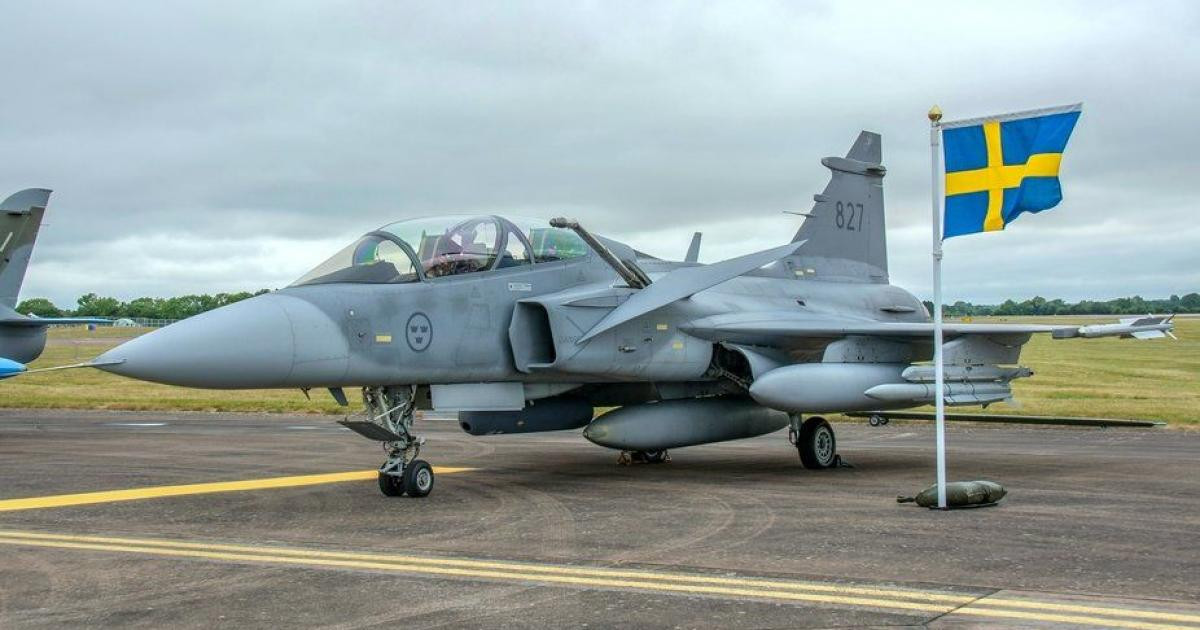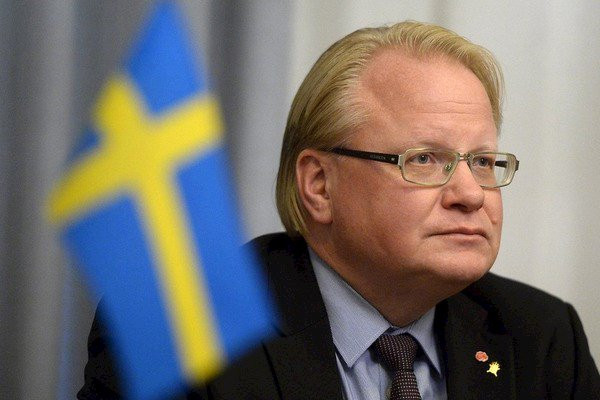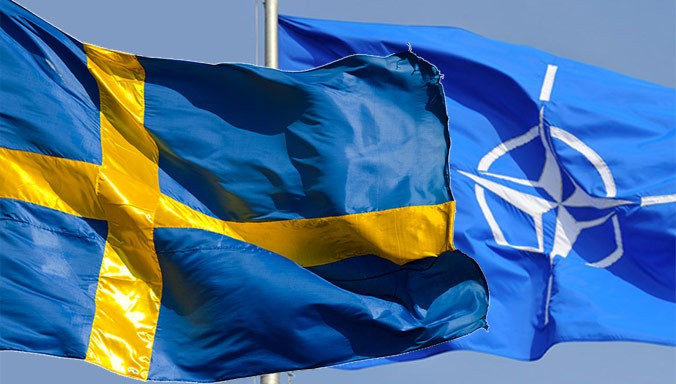Fearing Russia, Sweden changes defense strategy
(Baonghean.vn) - In a recent session, the Swedish Parliament voted to approve a proposal that Sweden could consider joining the North Atlantic Treaty Organization (NATO) in the future. Along with the approval of the largest defense budget in 70 years, this is a strategic shift for Sweden after many years of maintaining a policy of neutrality and non-alignment. And Swedish Defense Minister Peter Hultvuist has frankly pointed out that the most important reason behind these changes is Russia's actions in the Baltic region.
Strategic move
Propose "join NATOcould be an option in the future” received 204 votes in favor compared to 145 votes against in the Swedish Parliament session. Of course, this vote does not mean that Sweden will immediately proceed with the procedures to apply for NATO membership, but it has established a clearer position for the “NATO Option” stance that has been mentioned more and more in Swedish politics recently. Along with voting to approve the “NATO Option” proposal, the Swedish Parliament also approved a 40% increase in the defense budget for the period 2021-2025 to 89 billion Kronor (equivalent to 10.6 billion USD). This is the highest increase in 70 years, since Sweden refused to join NATO in 1949.
 |
| Sweden has increased its defense spending, including the purchase of more fighter jets. Photo: Euro Post |
Supporting the “NATO Option” and increasing the record defense budget is considered a strategic shift in Sweden’s defense policy, which could change the neutrality policy that the country has maintained for the past 200 years. It should be recalled that, although not a member of NATO, Sweden and its neighbor Finland have maintained relations with the largest military bloc on the planet since 1994 when they signed the Partnership for Peace agreement with NATO. In addition, in 2014, both countries signed a cooperation agreement with NATO, allowing NATO to conduct military exercises on Finnish and Swedish territory, and to participate in NATO’s Arctic Challenge 2015 exercise. However, despite cooperating with NATO, Sweden still tries to balance its relationship with Russia. Because of its location so close to Russia and its strategic role in the Northern Hemisphere, controlling the route from the Baltic Sea to the Atlantic, since the Cold War, Sweden, along with Finland, has maintained a neutral, non-aligned path. Sweden has implemented what the international community calls the “Finnish model”, which is to try to be neutral between Russia and the West, because Sweden understands that if this strategic balance breaks down, it could create a serious change, and Sweden would be put in a positiondirect confrontationextremely dangerous for Russia.
Russia is the factor that has made Sweden try to maintain a neutral policy for many years, but it is also the concern from Russia that has forced Sweden to make strategic changes in defense policy, starting with Russia's annexation of Crimea in 2014. A series of moves by Russia since then, such as intervening in the conflict in Ukraine, maintaining activities in Belarus, continuously upgrading military capabilities, conducting large-scale exercises... are making Sweden extremely worried. Swedish Defense Minister Peter Hultvuist has frankly stated that Sweden sees a new security environment in which Russia is willing to use military force to achieve political goals. Therefore, Sweden is forced to find ways to protect itself in a risky security environment. Sweden's deployment of troops to the Baltic island of Gotland in August after detecting Russian warships moving near the island is a move that clearly shows this concern. For Sweden, Gotland is a strategic island, at risk of being occupied in the event of an armed conflict between Russia and Western countries.
 |
| Swedish Defense Minister Peter Hultvuist said Russia was the reason for Sweden's sharp increase in defense spending. Photo: Getty |
The trend of NATO rapprochement
It should be noted that the Swedish parliament’s approval of the “NATO Option” is not a commitment to join. Looking at its neighbor, Finland also passed such an option in 1995 but is still not a member of NATO. But analysts say the Swedish parliament’s vote could signal the start of a new phase in the debate about NATO membership in Swedish politics – a debate about whether remaining outside NATO is the safest option for Sweden.
Until now, Swedish politics has been divided into two opposing camps. The current minority government of the Social Democrats and the Greens, along with their left-wing allies, has opposed NATO membership. These parties argue that neutrality is a long-standing value that Sweden has maintained in a polarized world and has brought many benefits to the country. Moreover,closer to NATOcould be seen as unnecessary antagonism towards Russia and risk destabilizing the already tense security situation along Europe's eastern flank.
On the other hand, four center-right parties, including the Moderate Party, the Liberal Party, the Center Party and the Christian Democrats, support the idea of joining NATO, because they believe that Sweden needs security and defense guarantees based on NATO membership. While the opponents of joining NATO believe that neutrality is a long-standing value, the supporters believe that this is a dangerous strategy, pushing Sweden into a "no-man's land" when there is no mutual defense commitment among NATO members. In addition to the parliamentary vote, the pro-NATO faction recently won a big victory when the far-right Sweden Democrats, which previously opposed the idea, now reversed their stance to promote cooperation with the center-right bloc in a series of other areas. The "switching sides" move of the Sweden Democrats is considered an important reason why defense-related issues have become a priority on the agenda of recent elections.
 |
| The topic of joining NATO is increasingly discussed in Sweden. Photo: The Observer |
Another notable development is that support for NATO membership among the Swedish public has been increasing in recent years. A recent study by the SOM Institute at the University of Gothenburg found that support and opposition to NATO membership are now at a similar level of around 30%. This is a marked change when compared to the results of a similar survey in 1994, when the opposition rate was 48% compared to 15% in favor. Analysts say that the direction of the story of Sweden joining NATO will depend on the ability of the parties to convince voters in the upcoming general election in 2022. If the pro-NATO camp “knocks” the center-left minority out of power, they could push for a referendum on the issue, paving the way for cooperation with Finland with NATO to respond to any dangerous actions by Russia in the Baltic region.

